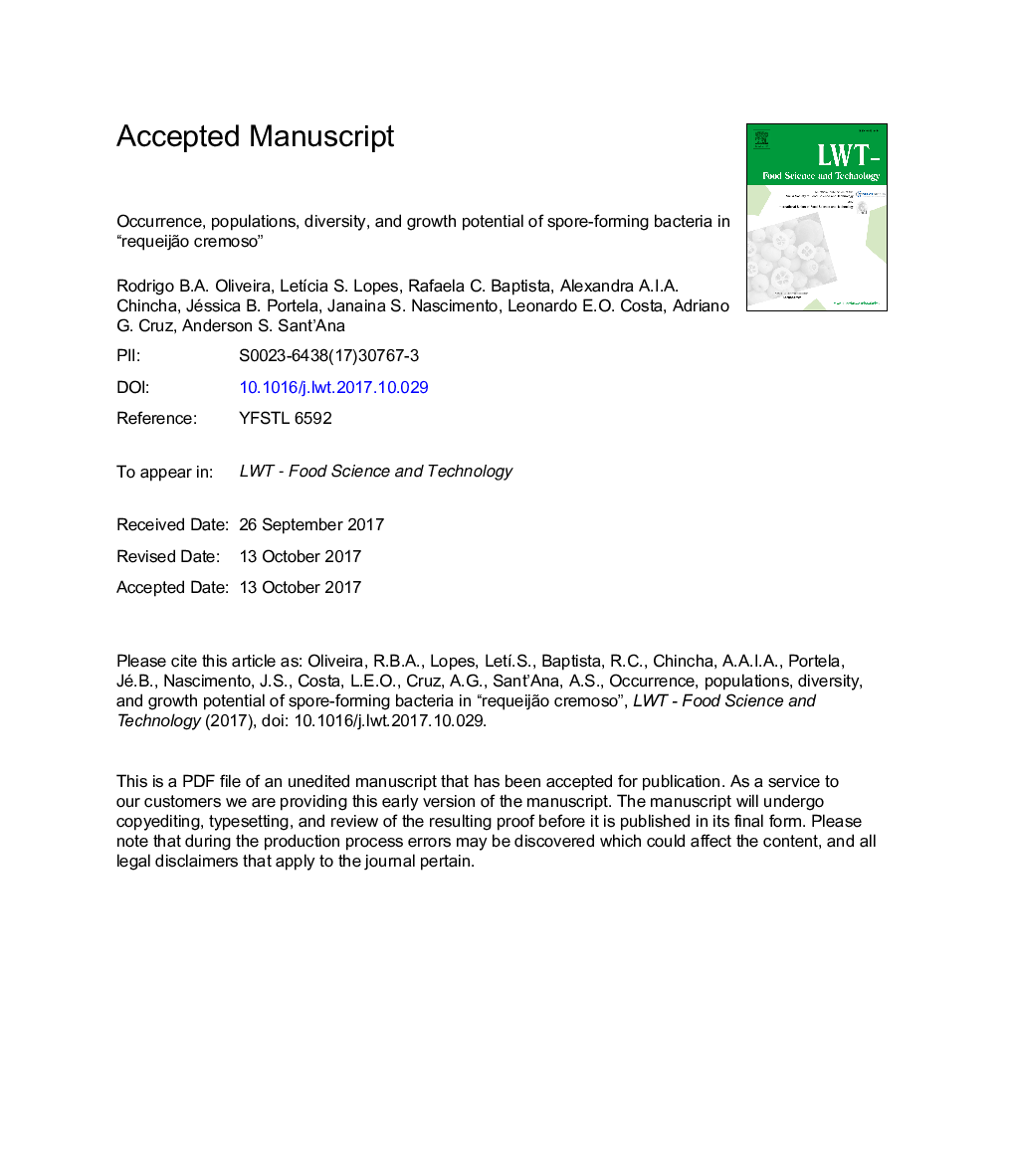| Article ID | Journal | Published Year | Pages | File Type |
|---|---|---|---|---|
| 8891817 | LWT - Food Science and Technology | 2018 | 35 Pages |
Abstract
The aim of this study was to determine the occurrence, counts, and diversity of spore-forming bacteria in three types (full fat, low fat, and flavored full fat) of “requeijão cremoso”. In addition, the growth potential (δ) of three prevalent species of spore-forming bacteria was determined in samples stored at three different temperatures. The occurrence of mesophilic aerobic spore-forming bacteria, mesophilic anaerobic spore-forming bacteria and blowing clostridia was around 30%, while only 1.38% of samples was contaminated with psychrotrophic aerobic spore-forming bacteria. The mean counts of psychrotrophic aerobic spore-forming bacteria, mesophilic anaerobic spore-forming bacteria, blowing clostridia and mesophilic aerobic spore-forming bacteria were 0.11 log CFU/g, 0.33 log MPN/g, 0.45 log MPN/g, and 0.46 log CFU/g, respectively. Paenibacillus sanguinis, P. brassicae, Bacillus thuringiensis, B. circulans, B. licheniformis, and B. pumilus were the most prevalent aerobic spore-forming bacteria species. On the other hand, C. sporogenes was the anaerobic mesophilic spore-forming bacteria species identified. P. sanguinis 2301083, B. thuringiensis bt407 and C. sporogenes JCM1416 may grow in full-fat, low-fat, and flavored full-fat “requeijão cremoso”, reaching δ values > 4 throughout the shelf life (>60 days), even when stored at low temperatures such as 4 °C.
Related Topics
Life Sciences
Agricultural and Biological Sciences
Food Science
Authors
Rodrigo B.A. Oliveira, LetÃcia S. Lopes, Rafaela C. Baptista, Alexandra A.I.A. Chincha, Jéssica B. Portela, Janaina S. Nascimento, Leonardo E.O. Costa, Adriano G. Cruz, Anderson S. Sant'Ana,
